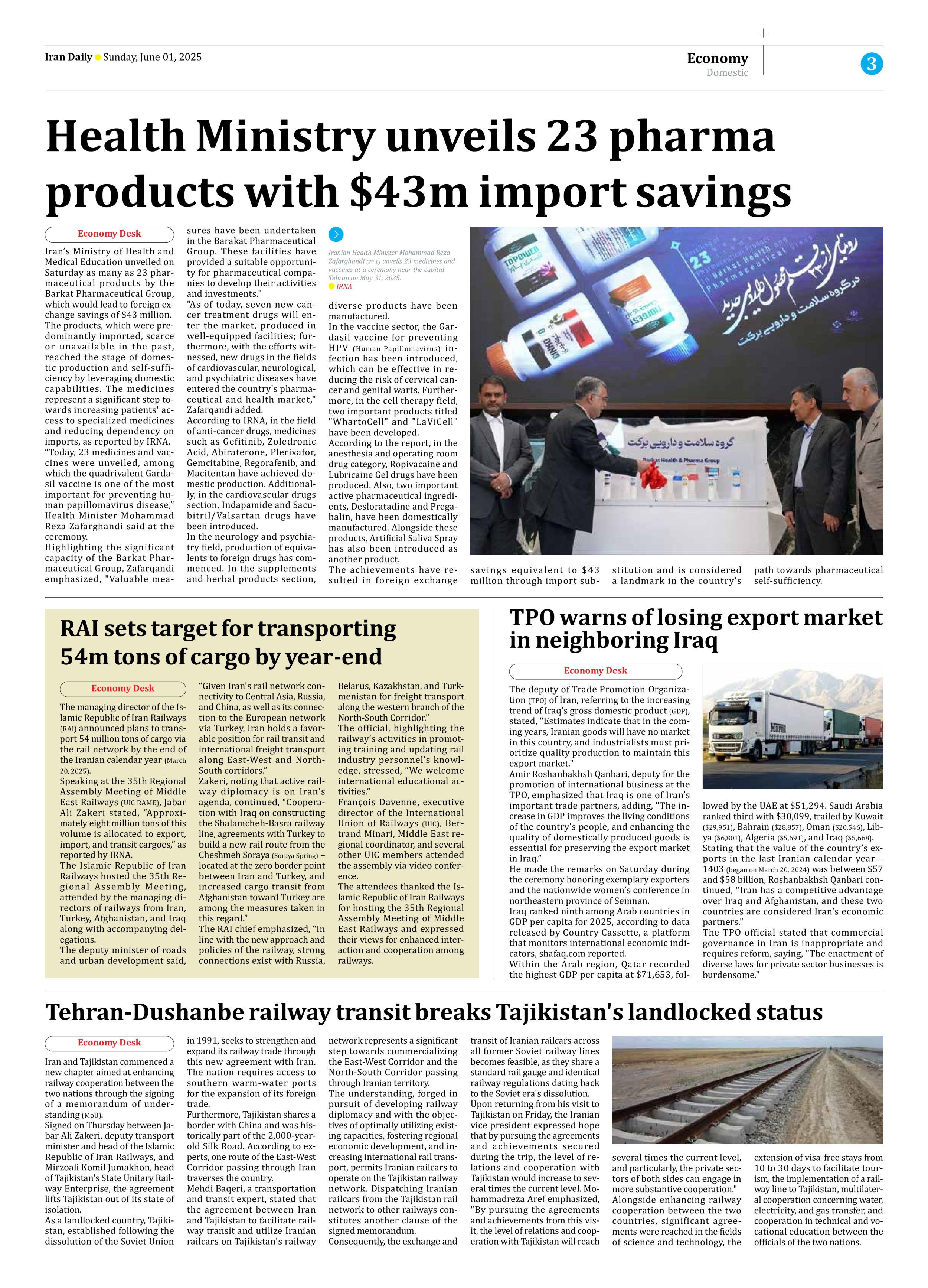
Tehran-Dushanbe railway transit breaks Tajikistan’s landlocked status
Iran and Tajikistan commenced a new chapter aimed at enhancing railway cooperation between the two nations through the signing of a memorandum of understanding (MoU).
Signed on Thursday between Jabar Ali Zakeri, deputy transport minister and head of the Islamic Republic of Iran Railways, and Mirzoali Komil Jumakhon, head of Tajikistan's State Unitary Railway Enterprise, the agreement lifts Tajikistan out of its state of isolation.
As a landlocked country, Tajikistan, established following the dissolution of the Soviet Union in 1991, seeks to strengthen and expand its railway trade through this new agreement with Iran. The nation requires access to southern warm-water ports for the expansion of its foreign trade.
Furthermore, Tajikistan shares a border with China and was historically part of the 2,000-year-old Silk Road. According to experts, one route of the East-West Corridor passing through Iran traverses the country.
Mehdi Baqeri, a transportation and transit expert, stated that the agreement between Iran and Tajikistan to facilitate railway transit and utilize Iranian railcars on Tajikistan's railway network represents a significant step towards commercializing the East-West Corridor and the North-South Corridor passing through Iranian territory.
The understanding, forged in pursuit of developing railway diplomacy and with the objectives of optimally utilizing existing capacities, fostering regional economic development, and increasing international rail transport, permits Iranian railcars to operate on the Tajikistan railway network. Dispatching Iranian railcars from the Tajikistan rail network to other railways constitutes another clause of the signed memorandum.
Consequently, the exchange and transit of Iranian railcars across all former Soviet railway lines becomes feasible, as they share a standard rail gauge and identical railway regulations dating back to the Soviet era's dissolution.
Upon returning from his visit to Tajikistan on Friday, the Iranian vice president expressed hope that by pursuing the agreements and achievements secured during the trip, the level of relations and cooperation with Tajikistan would increase to several times the current level. Mohammadreza Aref emphasized, "By pursuing the agreements and achievements from this visit, the level of relations and cooperation with Tajikistan will reach several times the current level, and particularly, the private sectors of both sides can engage in more substantive cooperation."
Alongside enhancing railway cooperation between the two countries, significant agreements were reached in the fields of science and technology, the extension of visa-free stays from 10 to 30 days to facilitate tourism, the implementation of a railway line to Tajikistan, multilateral cooperation concerning water, electricity, and gas transfer, and cooperation in technical and vocational education between the officials of the two nations.







